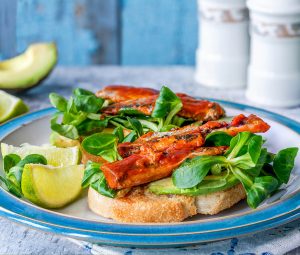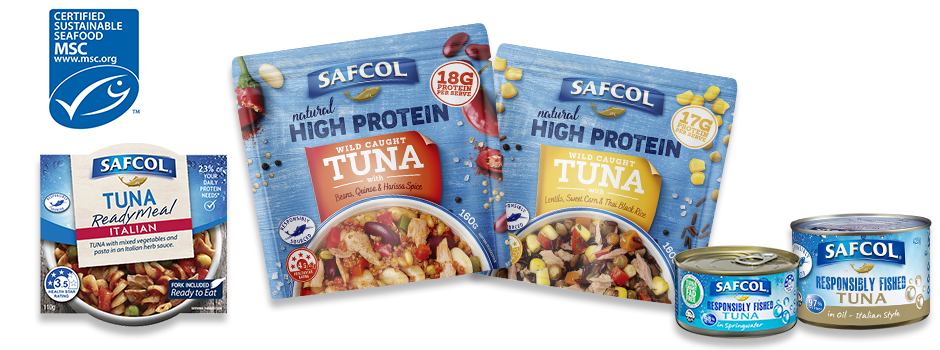by Ashleigh Feltham Accredited Practising Dietitian and Accredited Nutritionist

New Research: Sardines Prevent Type 2 Diabetes
Diabetes is the fastest-growing chronic disease in Australia. Every day, 280 new cases of diabetes are diagnosed. According to the Australian Bureau of Statistics, one in twenty (5.3%) Aussies had diabetes in 20-21.
There are two types of diabetes: type 1 and type 2.
Type 1 diabetes is out of a person’s control and is an autoimmune response where the immune system destroys the cells that create insulin, called beta cells. Insulin triggers blood sugar to move into your cells and without this hormone, blood sugar can continue to rise to unsafe levels. This is why injections of insulin are required.
Type 2 diabetes is the most common type of diabetes and is largely due to unhealthy lifestyle factors. Type 2 diabetes is diagnosed when insulin sensitivity is low and the amount of insulin that beta cells can secrete decreases.
Diet is one factor that influences the risk of developing diabetes. New research suggests that seafood plays a positive role in reducing the risk of developing diabetes due to many components within the seafood matrix. Of these factors, new research suggests that taurine in seafood, particularly in sardines, may help to reduce the chances of progressing from pre-diabetes to diabetes.
Taurine is an amino acid, or a building block that makes a protein. There are eight essential amino acids that you need to obtain from food because the body cannot make them. These amino acids are essential for the body to make a complete protein. Under specific circumstances, such as during pregnancy, the amino acid taurine becomes conditionally essential.
Taurine may have numerous effects that slow or reverse the progression to type 2 diabetes. This includes improving blood sugar levels, reducing inflammation, and reducing oxidation in the body.
Researchers investigated the potential positive effects of taurine on 152 people with pre-diabetes. This means they had a fasting blood glucose level of 100-124mg per decilitre. Participants were 65 years of age or older.
Participants were separated into two groups. One group consumed 200g of sardines a week and the other, the control group, did not. After one year, researchers found that the number of participants at greatest risk of developing type 2 diabetes was lower in the sardine group compared with the control group. The group that ate the sardines had significantly higher levels of the amino acid taurine in their blood. They also had higher levels of omega-3 fats, vitamin D, and fluorine.
In addition to this positive effect, the group that consumed sardines had an increase in ‘good’ HDL- cholesterol and a decrease in triglycerides. They also had lower blood pressure and an increase in adiponectin. As well as reducing inflammation and the formation of fatty deposits in the arteries, adiponectin increases insulin response.
The sardine group also had an increase in three different types of omega-3 polyunsaturated fat and a decrease in five different types of omega-6 fat. Omega-6 is often eaten in excess in the western diet and the imbalance in the ratio of omega-3 to omega-6 fat is linked to increased inflammation.
This research suggests that including adequate seafood each week may reduce your risk of developing type 2 diabetes. Include two to three servings of seafood each week. A serve of seafood is 100g of cooked seafood. Including a variety of seafood is recommended, including sardines.

Take home message
Sardines Prevent Type 2 Diabetes. Making seafood a regular part of your weekly diet offers many health benefits. If you are yet to explore sardines as a seafood choice, consider that it may hold health benefits to reduce your risk of developing type 2 diabetes.

References:
- Díaz-Rizzolo DA, Serra A, Colungo C, Sala-Vila A, Sisó-Almirall A, Gomis R. Type 2 diabetes preventive effects with a 12-months sardine-enriched diet in elderly population with prediabetes: An interventional, randomized and controlled trial. Clin Nutr. 2021 May;40(5):2587-2598. doi: 10.1016/j.clnu.2021.03.014. Epub 2021 Mar 18. PMID: 33932804.
- Diabetes in Australia. Diabetes Australia.
- Sardines reduced the risk of type 2 diabetes in older people with prediabetes. Examine














Comments are closed.